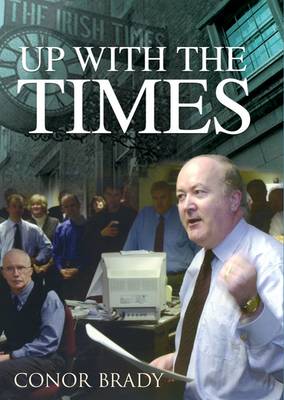Conor Brady edited "The Irish Times" for sixteen years between 1986 and 2002. It was a period of extraordinary change both in Ireland and in the wider world. This book reveals with intriguing detail how the paper both managed and made the news during two turbulent decades. It tells of encounters, not all friendly, with politicians, such as Charles Haughey, Dick Spring, Albert Reynolds (who sued the paper serially), John Hume, Mary Robinson, Bertie Ahern and many others. It describes the meticulous investigations - and sometimes the crises of decision making - that preceded pivotal stories, including Bishop Casey, the X Case, the Lenihan tapes, the fall of Albert Reynolds and others. It addresses the personal and corporate tensions at the heart of Ireland's longest-established national newspaper, while providing close insights into the working of modern media with an honest recognition of the good and bad that is contemporary journalism. "The Irish Times" has been at the centre of public life in Ireland for almost 150 years. It has been lauded as the mouthpiece of the establishment and decried as subversive of public order and morality. It has always been controversial.
Conor Brady likens the job of editor of a national newspaper to being the driver of an express train: 'There is no time to dwell on the wonders of the landscape or the novelty of the events that have just passed by.' His account of editing "The Irish Times" is a frank and engaging journey to the heart of a great Irish institution.
- ISBN10 0717139611
- ISBN13 9780717139613
- Publish Date October 2005
- Publish Status Out of Print
- Out of Print 8 March 2007
- Publish Country IE
- Publisher Gill
- Imprint Gill & Macmillan Ltd
- Format Hardcover
- Pages 296
- Language English
